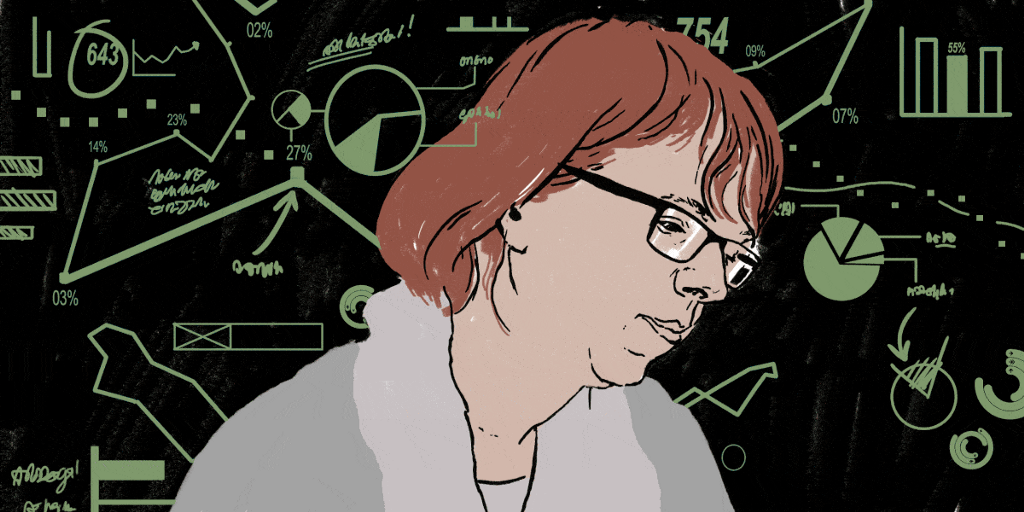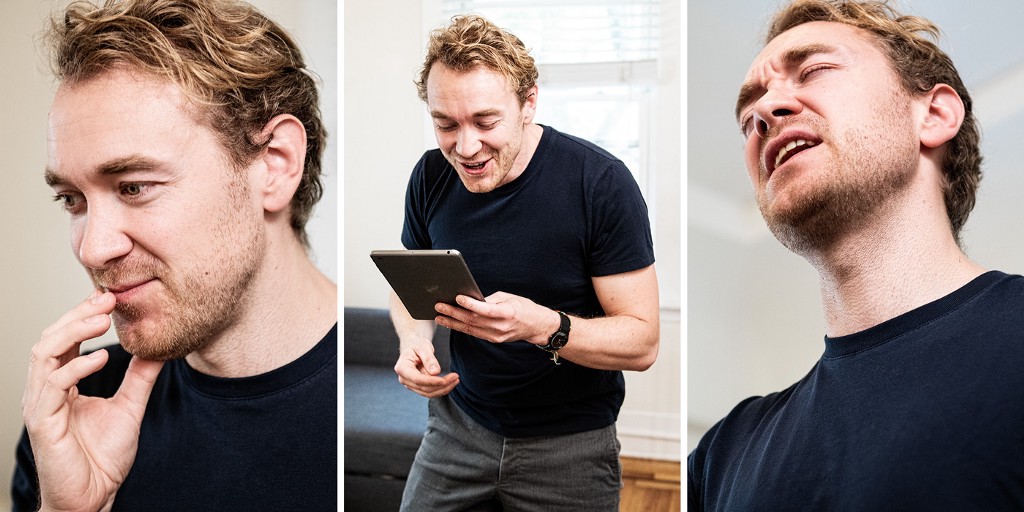Sara Riggare can’t finish her PhD because an ethics committee says she needed their approval first.
For the past six years, Sara Riggare, who has Parkinson’s disease, has been conducting research on herself as part of her PhD at the prestigious Karolinska Institute in Sweden. Using mobile apps, she tracks her symptoms, sleep, and activity.
She’s not unique in doing so: Many people self-monitor with apps and wearable devices like Fitbit and the Apple Watch, a trend spurred by the broader Quantified Self movement, where “lifeloggers” track everything from their blood sugar to their microbiome, and even carry out experiments on themselves.
But Riggare goes further than most in using her self-experimentation to contribute to science — including publishing studies on herself. In one study in the Journal of Parkinson’s Disease, she describes using a smartphone app that measures finger-tapping speed to evaluate how the effects of her Parkinson’s medications vary over the course of the day. For another peer-reviewed study, she vaped with an e-cigarette, then tracked and analyzed the effects of nicotine on her Parkinson’s symptoms. She gleaned important health insights from both studies, including that nicotine seemed to decrease the involuntary movements that are a common side effect of one drug.
But earlier this month, Riggare was told by a dissertation committee that she wouldn’t be able to defend her PhD in November as planned. The reason? She didn’t get approval from an ethics committee prior to conducting these studies. No law explicitly prevents her from experimenting on herself as a private person, but her dissertation committee interpreted a Swedish law called the Ethical Review Act to mean that she should’ve first obtained that permission because her experiments are considered research.
“The Swedish law on ethical review states that research on human beings with the intention to affect a research person physically may only be conducted after acquiring ethical permit,” the Karolinska Institute said in a statement provided to proto.life. “The reason is that research subjects must be protected. As a PhD student, Sara Riggare is part of a research group that includes her supervisors. The research group may not perform experiments on human beings without ethical permit, even if the person is one of its members.”
Should anyone have the power to prevent people from experimenting on themselves — or be able to deny credit for the science that self-experimenters produce?
In other words, the dissertation committee considered the two studies she had done toward her degree inadmissible. The Karolinska Institute requires that doctoral students publish at least two papers in peer-reviewed journals before they can defend their thesis. If Riggare can’t get retroactive approval for her research, she’ll have to do more research, which could take years.
Riggare was disappointed. (She announced the ruling on public Facebook and blog posts, but declined to make herself available for an interview, citing her health and workload.)
In an era of empowered patients and DIY scientists who constantly collect data about themselves on apps and smart devices, patient-driven research raises important questions. Should anyone have the power to prevent people from experimenting on themselves — or be able to deny credit for the science that self-experimenters produce?
“Of course we as a society need to ensure that all medical research is conducted in an ethical manner,” Riggare wrote in her post. “We also have a collective responsibility to ensure that our rules and regulations are appropriate for the day and age we live in.”
Who experiments on who?
Medical research actually has a long history of self-experimentation. And in many cases, it’s been heralded. Werner Forssmann, who performed the first heart catheterization on himself, and Barry Marshall, who gave himself ulcers in order to prove they were caused by bacterial infection, both won Nobel Prizes for their extreme experiments.

Since the 1970s, though, the research world has moved to a system in which studies involving human subjects need to be first reviewed and approved by an ethics committee. This requirement was designed to prevent abuses committed under the guise of medical research, like the Tuskegee experiment, in which African American men with syphilis were deliberately left untreated.
In the U.S., an institutional review board or IRB has the authority to approve or veto a study, or ask for modifications; other countries have their own versions. Their purpose is to protect human participants. One way they do that is by making sure researchers provide volunteers with clear information about any risks in the study, and get the participants’ informed consent — that is to say, the participants fully understand what they’re getting into and agree to it anyway.
“The whole reason that ethics boards exist is because of the information asymmetry in research,” says Mad Price Ball, executive director of the Open Humans Project, a platform that allows you to upload, connect and store your health data. That asymmetry means that volunteers typically know much less about the risks than the researchers do.
Self-experimentation, however, changes the formula. In this case the researcher who knows the most about the study is also the study’s volunteer.
“When the researcher and the participant are one and the same, the idea that they are not adequately informed but that some ethical committee is, I think is silly,” says Michelle Meyer, a bioethicist and lawyer at Geisinger Health System in Pennsylvania.
Under some circumstances, she notes, self-experimentation can raise ethical concerns. For example, graduate students could possibly feel pressure to do research on themselves to get published or do a dissertation.
“You could imagine the principal investigator of a lab saying, ‘We’re all going to test this on ourselves,’” she says. “Just because they’re all co-investigators on a study doesn’t mean that there can’t be power differentials that could be troubling.”
There’s a real concern that the science produced by people like Riggare will be lost, says Mad Price Ball.
Christian Munthe, professor of practical philosophy at the University of Gothenburg in Sweden and a member of the delegation for medical ethics of the Swedish Society of Medicine says he agrees with the Karolinska Institute’s review of Swedish law. However, he says, “the legal fault formally falls on the head of department for the unit where the candidate’s research was undertaken. It is, furthermore, good reason for the candidate to demand and get compensation in the form of extended PhD funding for the lost time, so that she can finish her PhD training in a proper manner.”
In the U.S., Meyer says, many IRBs have taken a similar position: if you’re doing research and it involves human subjects, you are a human subject even if you’re also the researcher.
“I think the conversation is about whether that’s an appropriate policy or not,” says Meyer, adding that IRBs weren’t designed with self-experimentation in mind.
Ball expects that other scientific self-experimenters, including in the U.S., could also be denied credit for their work, and worries it could encourage “senseless risk aversion” in research. Plus, Ball says, there’s a real concern that the science produced by people like Riggare will be lost: “When knowledge has been gained, should you really decide to toss a whole body of work into the dumpster? That’s a serious ethical question.”




















